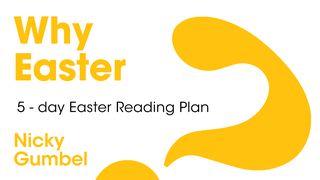Three Strikes, You're Forgiven: A 5-Day Challenge by Micah E. DavisSýnishorn

SCENE FIVE: THE BEACH
VERSE: Mark 14:30
A few days after Jesus’ death, burial, and resurrection, the Lord appears to Peter. This is the first recorded conversation we have between them since Peter’s tragic failure in Mark 14, and here’s how it goes:
“Simon, son of John, do you love me more than these?”
“Yes, Lord,” he said, “you know that I love you.”
Jesus said, “Feed my lambs.”
Again, Jesus said, “Simon, son of John, do you love me?”
He answered, “Yes, Lord, you know that I love you.”
Jesus said, “Take care of my sheep.”
The third time he said to him, “Simon son of John, do you love me?”
Peter was hurt because Jesus asked him the third time,
“Do you love me?” He said, “Lord, you know all things; you know that I love you.”
Jesus said, “Feed my sheep” (John 21:15-17, NIV).
In case we’re not tracking, Peter fell asleep three times. Peter denied Jesus three times. Jesus hung on a cross in darkness for three hours. Jesus lay in a tomb dead for three days. And then Jesus resurrected, conquering death, sin, and failure forever. In the first recorded conversation post-resurrection between Jesus and his disciples, he says a singular statement about peace three times. In the first recorded conversation post-resurrection between Peter and Jesus, he asks Peter a simple question three times.
Notice that Peter was hurt after Jesus asked him the third time. Why? Because Peter was still operating by the standard Jewish law of his day. As previously mentioned, in ancient Israel, Jewish rabbis taught that forgiveness need only be extended . . . three times. Seriously. After that, one could simply break the relationship and move on. Seems not much has changed today, right?
If someone asks you something three times, you’ve reached the limit. Three questions, he’s out. Point blank. Period.
But Jesus was rewriting the script. For every abandonment, every denial, every failure that Peter had committed . . . forgiveness was waiting for him.
Check out this interaction between Jesus and—yep, you guessed it—Peter. “Then Peter came to Jesus and asked, ‘Lord, how many times shall I forgive my brother or sister who sins against me? Up to seven times?’ Jesus answered, ‘I tell you, not seven times, but seventy-seven times’” (Matthew 18:21-22, NIV).
Forgiveness sounds right. But it often doesn’t feel right.
However, the way of Jesus is adamantly clear. Forgiveness is for everyone. Even—especially—for those we consider our “enemies.” Here’s Jesus in Matthew 5: “You have heard that it was said, ‘Love your neighbor and hate your enemy.’ But I tell you, love your enemies and pray for those who persecute you” (Matthew 5:43-44, NIV).
To follow Jesus is not just to “talk the talk” of forgiveness but to actually walk it out. We can’t call for forgiveness over and over again and not practice it. Eventually, people will stop believing us. We must live it.
But how? This is incredibly difficult. It is because of Jesus’ death and resurrection that forgiveness, beyond three strikes, is possible. We serve a God who offers second, third, and fiftieth chances. He is a God who never gives up on you.
The New International Version translation heads this passage with the title “Jesus Reinstates Peter,” because that’s exactly what is happening. Peter, the denier, liar, and abandoner, steps fully into the redeemed namesake Jesus gives him. The rock on which Jesus will build his church. “Then [Jesus] said to him, ‘Follow me!’” (John 21:19, NIV).
Wouldn’t you know, this is one of Peter’s last recorded lines in the Gospels. A new story is being written. One that picks up in Acts 2 when Peter addresses the crowd with the first sermon after Pentecost. Full of the Holy Spirit, Peter, the rock, goes on to build Christ’s church. As it turns out, failure isn’t final. Forgiveness is.
Three strikes . . . you’re forgiven.
For Reflection: If Jesus has forgiven you beyond your failures, who might he be asking you to forgive beyond theirs? Take some extensive time today to think about what conversations you need to have, calls you need to make, or actions you need to take in light of the scandalous mercy of the gospel.
If you have enjoyed this reading plan, check out the book Three Strikes, You're Forgiven by Micah E. Davis. More information can be found at micahedavis.com.
About this Plan

Have you ever found yourself struggling to forgive someone who has hurt you repeatedly? We intuitively understand . . . three strikes, you’re out. Three failures seem to be the built-in breaking point for most of us. But the Way of Jesus says forgiveness has the final word, never failure. Micah E. Davis invites you to join him for this five-day reading plan from his new book, Three Strikes, You’re Forgiven, to discover freedom and healing from your hurt.
More








